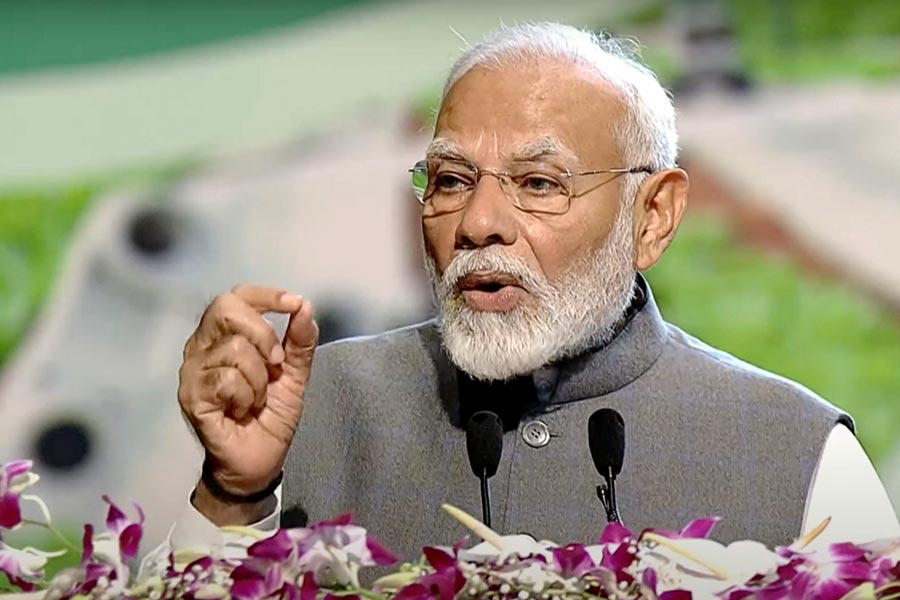Indian elections are mostly analysed either as a numbers game or in terms of binary ideological frames. Progressives are analysing it as a binary contest between communalism and the Constitution. Such an ideological framing avoids the empiricist trap but falls into the realm of abstract normative imagination. People, however, negotiate elections through everyday lay normativity. They think neither in purely ideological terms nor in vulgar empiricism.
Progressives suffer from a distant gaze that is connected to their privileged social locationality. Abstract reasoning attempts to reinforce their privileged social position that assumes conflicts as given. The absence of conflict is reduced to hegemony. What is missing in this are the concrete mediations that transform normative concerns in manifold ways that cannot be deduced from the understanding of pure normativity.
For instance, can the electoral outcome be framed as a return to the Constitution? A constitutional framing of the outcome doesn’t tell us about the motivations that drove the voters on the ground. Motivations are contextual, while the Constitution was presented in the Opposition campaign as sacred and driven by normative principles. As a result, when voters look like they are matching their abstract-normative reasoning, the progressives-Opposition laud the process as a return to the constitutional vision.
The same fixity tars the analysis of post-election developments. The Opposition is now waiting for Narendra Modi to falter owing to his authoritarian mannerisms. But there is no reason for Modi to not become more accommodating given the power at stake. The progressives completely miss the pragmatism built into Modi’s strategising. Modi has made handsome use of this by fixing the Opposition’s narrative, dodging their predictions, and keeping them second-guessing. Modi also adopts a psychological approach that allows him to distort the claims of and the campaigns by the Opposition because these campaigns are ideological, bereft of mediations and context. As long as abstract principles and normative concerns of the progressives-Opposition are not grounded in concrete processes, they will continue to struggle to set the narrative. The conservative-Right, on the other hand, brings concrete experiences through story-like narratives that can personalise political issues. This model of governance could turn authoritarian but is emotionally reassuring.
If elitism is the problem of the Opposition, the Right is perennially diffident. In its bid to consolidate, the Right weaponises pragmatism. But the pragmatism of the common people is not bereft of everyday ethics. Everyday ethics is not a choice; it emerges from the compulsions of interdependencies. The Right undermines this aspect and in trampling everyday ethics wishes to create hysteria.
The Right confuses its ruthless pragmatism as people’s support for hysteria. This was made clear when the people did not go along with the hysteria that was sought to be generated by the Ram temple in Ayodhya. What the people sought was a sense of belonging. They supported Modi’s identification with culture and religion, but not their reduction to crass commercial/political imperatives.
Earlier, the progressives confused the people’s yearning for cultural belonging to communalism. Now, they have tied the vote against Modi to issues of employment. Both the progressive-Left and the conservative-Right find it difficult to identify the collective sense of belonging as an independent aspect of the people’s
lifeworld. It is neither about communal hatred nor prone to hysteria.
The Opposition can ill-afford to wait for Modi to falter. As a responsible Opposition, it needs to create new narratives that can fuse inclusive ethics into concrete experiences and policies. Modi will alter his personality as all pragmatists do. The Opposition should not be taken aback by this and spend the rest of the term looking for Mod’s slippages. It should generate a positive politics based on people’s lay normativity.
Ajay Gudavarthy is Associate Professor, Centre for Political Studies, JNU










